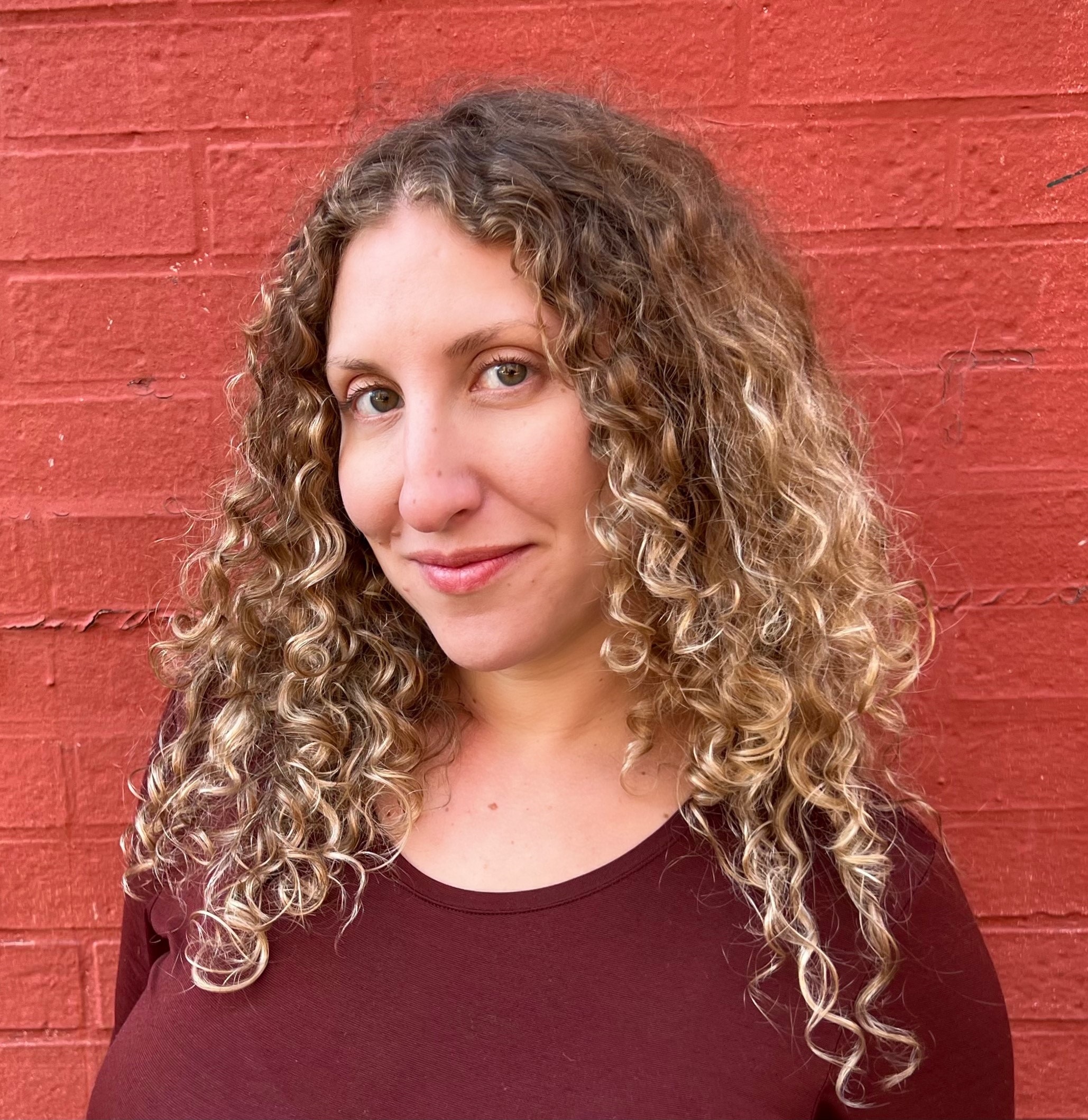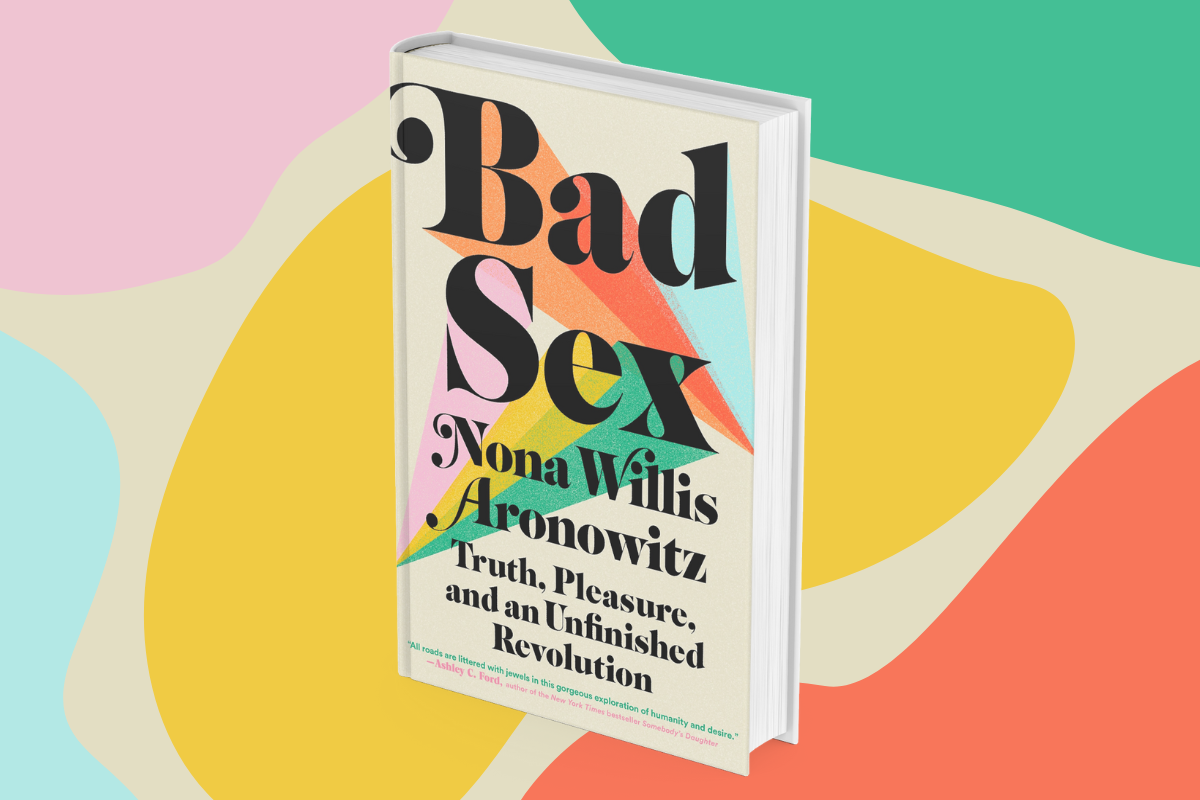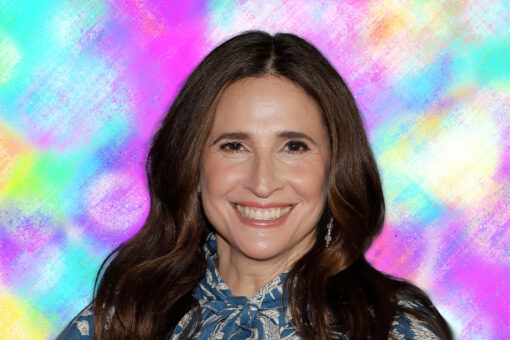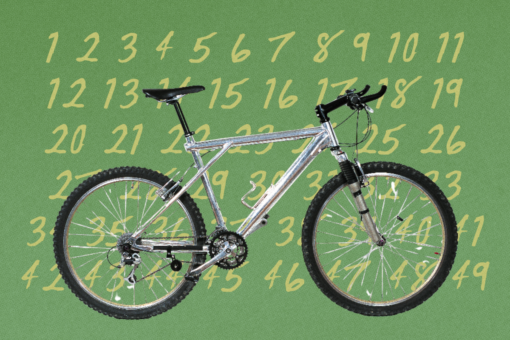Reading Nona Willis Aronowitz’s new book “Bad Sex: Truth, Pleasure and an Unfinished Revolution” feels like a dishy session with a friend over drinks about their latest escapades. But it’s also paired with a deep dive into her own heritage as the daughter of two prominent Jewish American intellectuals: Her mother was feminist writer and rock critic Ellen Willis — she coined the term “pro-sex feminist” — and her father was sociology and labor scholar and writer Stanley Aronowitz.
After her mother died from cancer when Willis Aronowitz was 22, she turned to Willis’ prolific published writing and diaries for guidance. Questions and answers about family and identity are infused throughout the new book.
“I started thinking about my parents as just two out of so many poor souls who try to square their personal lives with their politics,” Willis Aronowitz writes. The book starts with Willis Aronowitz wondering if a sexual mismatch is enough to end her marriage; the ensuing exploration ranges from the personal to the systemic, exploring how patriarchy, capitalism and white supremacy affect our sex lives and beyond.

Willis Aronowitz spoke to me from her home in upstate New York about the sexual climate at Jewish summer camp, the legacy of Jewish feminist intellectual discourse and writing about sexuality as a straight woman.
This interview has been lightly edited and condensed for clarity.
Can you talk about the importance of your Jewish identity on you and this book?
I definitely think it’s a subtext of this book. I don’t talk about it that much, but I find it to be extremely relevant. Jewish women made up a disproportionate amount of second wave feminists. It was a very Jewish movement. [laughing] And it was an intrinsic part of my identity, not in a religious sense, but in a cultural sense. I went to a Jewish socialist summer camp that was extremely influential. Both of my parents were secular leftist Jews, and drilled into me that being very analytical and socially active and socially conscious are Jewish qualities — the desire to make the world better, that’s a very Jewish thing.
That summer camp sounds amazing! Can you talk about how it might have shaped your identities, both Jewish and/or as a feminist?
Oh yes, it was absolutely central to both my writing life and sexuality. I went to Camp Kinderland, which is a Jewish socialist summer camp that taught us civil rights songs and Yiddish and about off-the-beaten-path figures like suffragist Ernestine Rose and anti-fascist paratrooper Hannah Senesh. It supplemented and deepened what I’d learned at school and also gave context to the values I’d learned at home, being raised by two Jewish red-diaper babies. There was also a culture of healthy debate there despite the camp’s obvious leftist leanings, which always taught me not to succumb to knee-jerk politics when I became a writer later on.
And in terms of sex, what can I say? Camp is where the magic happened. Camp is a very intimate experience — everyone is in such close quarters. Crushes were stronger, activities were handsier, the line between structured time and free time was more porous. Plus, you’re in nature, so even the hookup locations felt more adventurous and thrilling. I had my first kiss there. I met my first sexual partner there. Several of my friends met their spouses at camp.
It was also the place where I first realized that having leftist politics does not necessarily eradicate sexism or sexual double standards — even amid this progressive utopia, there was slut-shaming and a pretty merciless sexual marketplace. But again, like many Jews, we talked and talked and overthought about it all, and for that I am grateful.
One of the sexual relationships you discuss in the book, with an Israeli man named Mor, was fascinating because it was short-lived but seemed formative. Did this relationship feel like a turning point in your journey?
The few months with Mor were an extremely key moment for me, even though I knew while it was happening that it had no staying power. The physical part was important because he was this very diminutive, effeminate-looking guy, which historically had not been my type. I went for guys with characteristics that the mainstream considers hot: tall, broad shoulders, deep voice. But Mor was different; he was beautiful and I really lavished attention upon his beauty in the way that men often do with women’s beauty. I think he actually felt self-conscious about it; he had been in the IDF and was still holding onto a lot of traditional notions about masculinity. But he also clearly enjoyed it.
When it came to the emotional element, he taught me that there needs to be a delicate balance of vulnerability and protection in every relationship. Letting go of your “chill” is admirable in a world full of increasingly detached hookups, but you also can’t just trust anyone with your emotions. Every relationship is a dance with pleasure and danger, to paraphrase the great Carole Vance. He encouraged me to be more “real” about my emotions, which is a wonderful thing, but it was at great personal cost to me.
In your chapter “The Vulnerability Gradient,” you talk about the differences between yourself and women of color in terms of going after sexual liberation. How do you think being a Jewish woman affects this, or how you move and date in the world in general?
My Jewish identity is very much secular, and my Jewish friends and community have always encouraged sexual exploration and self-actualization. That chapter is about the various vulnerabilities that come up with each intertwining identity, and while being Jewish is certainly a big part of my identity, it’s never felt like a liability in this regard. If anything, the general ethic of tikkun olam has extended to sex: I try to have a kindness toward others and an awareness of others’ vulnerabilities in a sexual situation — even cis men who, at first glance, seem pretty sexually invulnerable.
I was surprised, and deeply moved, at how much of a theme grief and family were in this book. Was that always going to be part of this narrative?
I think you can’t really describe your sexuality in isolation; you also have to describe your upbringing, and your influences. My parents not only raised my in a personal way, but my mom also really handed this feminist legacy to me, so she was a historical figure and a personal figure in my life. I’ve edited anthologies of her work, but this is the first time I’ve written about her from a personal perspective.
I learned so much from what you share of your mother’s writing and the subsequent history of the feminist movement. How did you decide to structure a book about bad sex this way?
The interesting thing about my divorce, and this sort of sexual awakening I was going through that inspired the book, was that it was genuinely coupled with this historical education for myself. It is not a literary device! I was actively re-reading my mom’s work for guidance, which led me to seek out the contexts she was writing about. And also, Trump had just gotten elected and it felt like a crucial time to reckon with these issues politically, too.
Even though you know your mother’s writing so deeply, were there things you were surprised at when writing this book?
Just before Covid, I went to Radcliffe, where my mother’s papers are archived. I had seen all that stuff when I was in my early 20s, but it was a totally different experience in my mid-30s to read some super personal writing of hers — like these journal entries about my dad and their relationship before I was born. It was very emotional! He caused her a lot of pain and uncertainty, and if you just read those entries, you might think they’d broken up. But instead, they had me and then a 25-year relationship, and they somehow worked it out, and I’m not sure how.
I really appreciated your candor about the complexities of identifying as heterosexual in this cultural moment, especially in the chapter “In It for the Dick,” where you talk about feeling judged and unevolved for your sexual orientation. I feel like I haven’t read this from a cis-het woman before.
You’re right — a lot of queer people are writing about queer identity and queer people are also the ones mostly writing about heterosexuality. I was really inspired to write about this in response to Asa Seresin’s essay “On Heteropessimism” and a lot of other essays I was seeing about straight people written by queer people, while straight people weren’t engaging in the issue. I felt like I had to weigh in on my own sexual orientation. And it was also the reason why I wrote a chapter I called “The Vulnerability Gradient”: I wanted to identify how, as a white woman, I am coming from a really different place than women of color, or people with other marginalized identities, who might not so readily seek out sexual liberation. I felt like I had to weigh in on that, too.
Who is your ideal reader for “Bad Sex”?
I wrote it for a younger generation so they can really grapple with what I went through — so that they don’t end up in an eight-year relationship without having consciousness about it. And I know that this might be unrealistic, but I really hope and wish that men read this book. I just feel like it’s so fucked up that a lot of writing about gender and sexuality is about men, but they don’t participate in it — at least straight men don’t. I’m kind of like, “Can you weigh in?” [laughs]



